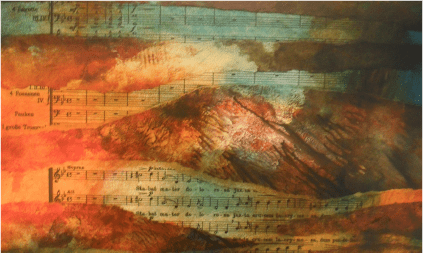Amalie von Sachsen
About the composer
Amalie Marie Friederike Auguste, Princess of Saxony was born in 1794 in Dresden (Germany). She was the eldest daughter of Prince Maximilian (1759–1838) and Caroline von Bourbon–Parma (1770–1804).
The princess received a comprehensive musical education. She played the violin, piano, sang, and started composing at an early age. Her teachers included Joseph Schuster, Franz Anton Schubert, Vincenzo Rastrelli, Aloys Miksch, and Carl Maria von Weber.
Between 1812 and 1835, she composed several songs, a string quartet, church music, twelve operas and a ‘singspiel’. The operas are ‘dramma giocoso’ with Italian libretti. The Singspiel is in the German language. She often used the pseudonym A. Serena. Performances mostly took place within the royal family circle at the summer residence, Pillnitz Castle, or at the Dresden Princes’ Palace on Taschenberg. Her church musical compositions were heard in the Dresden Court Church. Carl Maria von Weber often conducted her works, and the already famous Dresden Court Orchestra played them.
Starting in 1835, Amalie von Sachsen, under the pseudonym Amalie Heiter, exclusively wrote plays and libretti for operas and operettas. These plays were highly successful and were performed on many German stages and, in several translations, abroad as well. Her creative career was cut short in 1851 due to an eye ailment.
Amalie von Sachsen passed away on September 18, 1870, in Pillnitz and was interred in the crypt of the royal family at the Dresden Court Church.
In 2015 Dr. Petra Andrejewski founded the publishing house Edition Serena in Moritzburg, Germany, with the goal of publishing compositions by Princess Amalie von Sachsen (1794–1870). She named the publishing house after a pseudonym Amalie von Sachsen used as a composer, ‘Serena’. In 2021, her Ph.D. in Musicology was completed on the subject ‘The Composer Amalie von Sachsen.
About the Stabat Mater
| Date: | 1824 |
| Performers: | Mixed choir, orchestra, soprano, alto and tenor |
| Length: | 17.15 minutes |
| Particulars: | This Stabat Mater composition is splendid, evoking Mozart due to its opera-like elements. We thoroughly enjoy listening to it. What's particularly noteworthy is the final stanza, 'Quando corpus morietur,' which includes a pause. After the first two lines, it appears that a new section commences with the third line, 'Paradisi Gloria,' featuring a magnificent fugue! In the autograph score, corrections by Franz Anton Schubert and Carl Maria von Weber can be found. Schubert had been Amalie's composition teacher since the summer of 1815. On March 5th, 1824, just four weeks before the Stabat Mater performance, he passed away. Carl Maria von Weber took over as the conductor for the premiere, which took place on April 4th at half-past 7 in the evening, in the dining hall of Prince Anton. |
| Textual variations: | All twenty stanzas are sung and the "Analecta" -version of the Latin text has been used. |
| Colour bar: |
|
Information about the recording
| Audio Recording: | Audio recording of a concert on October 31th, 2021 |
| More info: | Recording of a concert on October 31th 2021 in Dresden – Annenkirche, a new performance after almost two hundred years. Please watch the complete video recording of concert on the YouTube channel of Edition Serena. |
| Orchestra: | Musica Florea, Prag |
| Choir: | Sächsisches Vocalensemble |
| Conductor: | Matthias Jung |
| Soloists: | Felicitas Wrede, Soprano |
| Code: |





